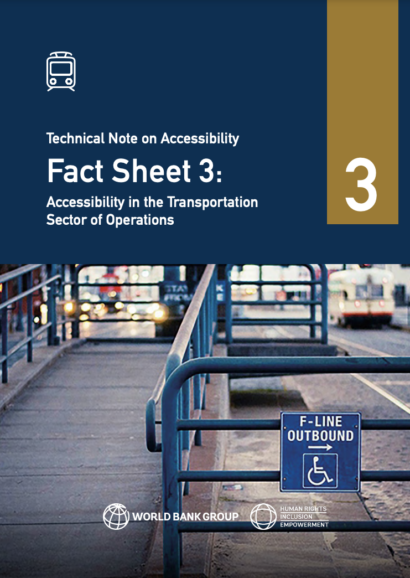
Accessible transportation to connect persons with disabilities in rural areas to health centers, clinics, school, family, cities, and jobs is an important and often neglected component. In many countries, there are limited affordable and accessible transport options, particularly in rural areas. Ensuring that infrastructure and transport development considers and meets the needs of persons with disabilities is of critical importance. This can be done through ensuring small-scale bus services and expanding access to paved roads. It is recommended that planners who are designing or retrofitting transport facilities for accessibility engage with persons with disabilities. Engaging with persons who have a variety of different types of disabilities, and researching the legal requirements and guidelines for accessible spaces will ensure that the accessibility features are implemented in the most user-friendly way possible. This will in turn ensure that persons with disabilities are able to benefit from the investments in transportation that are being made around the world.




